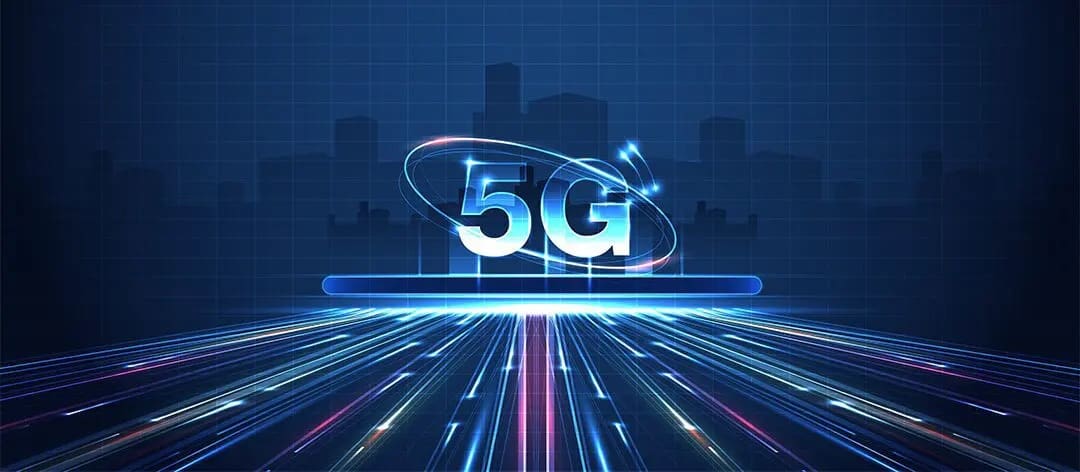
5G technology is ushering in a new era of connectivity, bringing with it transformative changes across all industries. As the fifth generation of mobile networks, 5G goes beyond faster internet speeds for smartphones, it has the potential to reshape the entire business landscape. In this blog, we will explore how 5G is changing the way businesses operate and the opportunities it presents for innovation and growth.
ENHANCED CONNECTIVITY AND SPEED
One of the most immediate and visible impacts of 5G is the significant increase in data transfer speeds and lower latency, and with download speeds reaching up to several gigabits per second (Gbps), it’s a significant leap forward from 4G. This immense speed translates to almost instantaneous downloading and streaming of high-definition content, making activities like watching 4K videos. This high-speed connectivity enables businesses to process and transmit data in real-time, facilitating quicker decision-making and improving overall operational efficiency.
IOT REVOLUTION
5G’s low latency and high capacity make it the ideal infrastructure for the Internet of Things (IoT). With the ability to connect an unprecedented number of devices simultaneously, businesses can deploy and manage IoT devices on a massive scale. This is especially crucial for applications that demand real-time interactions in sectors such as manufacturing, logistics, healthcare, and smart cities. The real-time data enables better decision-making and automation. The ability to transmit data quickly and enable low power when not in active use, helps extend the battery life of IoT devices, reducing the need for frequent recharging or maintenance.
INDUSTRY 4.0 AND SMART MANUFACTURING
5G is a key enabler of Industry 4.0, the fourth industrial revolution characterised by the integration of smart technologies into manufacturing processes. The ultra-reliable low latency communication capability of 5G allows for precise control of machinery, facilitating automation, predictive maintenance, and the creation of highly efficient smart factories.
REMOTE WORK AND COLLABORATION
The COVID-19 pandemic accelerated the adoption of remote work, and 5G is poised to make remote collaboration even more seamless. High-speed, low-latency connectivity enables smooth video conferencing, augmented reality (AR), and virtual reality (VR) applications, transforming the way teams collaborate and increasing productivity.
EDGE COMPUTING AND DECENTRALISED PROCESSING
5G reduces the need for centralised cloud processing by enabling edge computing, where data is processed closer to the source. This not only reduces latency but also enhances the efficiency of applications that require real-time data processing, such as autonomous vehicles, smart grids, and augmented reality applications.
AUGMENTED REALITY (AR) AND VIRTUAL REALITY (VR)
The combination of 5G and AR/VR technologies opens up new possibilities for immersive experiences. Industries such as gaming, education, healthcare, and retail can leverage 5G to deliver high-quality, real-time AR and VR content, creating engaging and interactive experiences for users. The use of digital twin has expanded through the deployment of 5G technology. Digital twin utilises 5G to help simulate complex scenarios with high fidelity. This is particularly valuable in industries such as manufacturing, where intricate processes can be replicated in real-time, allowing for precise analysis, optimisation, and troubleshooting without disruption to physical operations.
SUPPLY CHAIN OPTIMISATION
5G facilitates real-time tracking and monitoring of goods in transit, leading to improved supply chain visibility and efficiency. Businesses can optimise logistics operations, reduce costs, and enhance the overall resilience of their supply chains.
The rollout of 5G is not just an evolution in telecommunications; it’s a catalyst for profound changes in how businesses operate and innovate. From enabling the widespread adoption of IoT and smart technologies is modernise the manufacturing processes and enhancing remote collaboration, 5G is pioneering the business landscape. As businesses continue to adapt and harness the potential of 5G, we can anticipate a future where connectivity is not just fast but also intelligent, paving the way for unprecedented levels of innovation and economic growth.